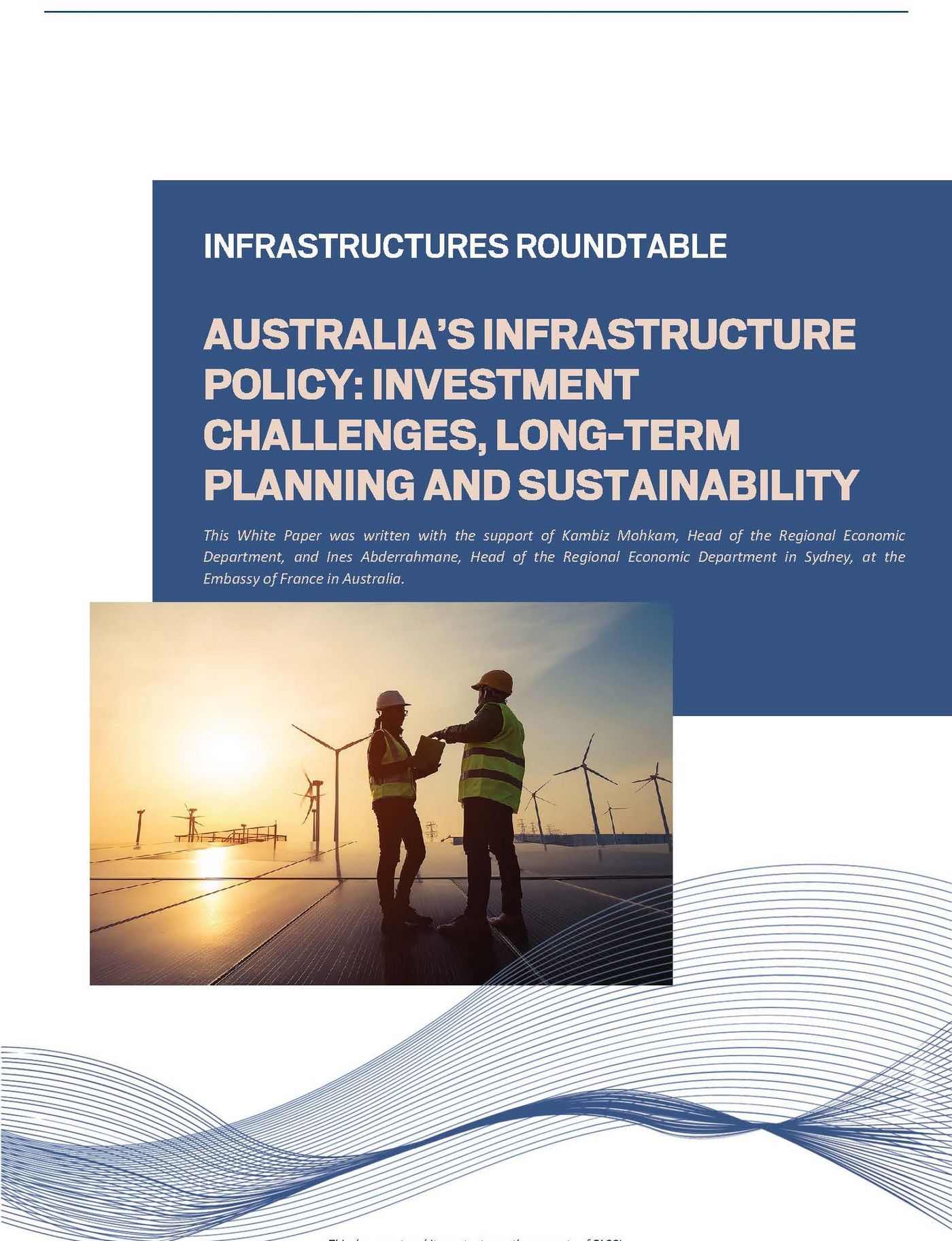White Paper - Australia's Infrastructure Policy

Abstract
Discover the key trends, challenges, and opportunities shaping Australia’s infrastructure future.
Summary
Over the past years Australia’s infrastructure sector has faced some structural pressures such as urbanisation, rising construction and materials costs, climate imperatives and skilled-labour constraints.
These dynamics have driven Infrastructure Australia (IA) to broaden its role from project by project appraisal toward strategic, advisory and sustainability-driven mandate, providing « independent, evidence-based advice to government on nationally-significant infrastructure » and maintaining national instruments such as the Infrastructure Priority List1.
Legislative developments, including the Climate Change Bill 20222 and the Infrastructure Australia Amendment Act 2023, have further strengthened sustainability and governance requirements into federal infrastructure decision-making. The Climate Change Act establishes Australia’s emissions trajectory3 and reporting architecture, which informs how infrastructure projects are assessed against national climate objectives.
At the same time, IA’s Market Capacity analysis documents a contraction in the medium-term public pipeline, notably an 8% reduction in the five-year Major Public Infrastructure Pipeline (equivalent to roughly a $32-billion change in some categories reported in 2024)4, while identifying delivery risks such as materials and workforce shortages. These trends frame the twin policy challenges of sustaining delivery capacity and aligning investment with net-zero commitments.
On 3 September 2025, the French-Australian Chamber of Commerce & Industry (FACCI), supported by the Economic Department of the French Embassy, organised a high-level roundtable in Sydney dedicated to the future of Australian infrastructure. The session brought together Adam Copp, Chief Executive Officer of Infrastructure Australia, as the keynote guest, alongside senior representatives from the French transport and infrastructure sector (including engineering, construction, mobility and finance).
This discussion came as recent Infrastructure Australia publications were published, such as the Infrastructure Market Capacity Report 2024 and the Embodied Carbon Projections Report 2024. They highlight both the ambition of the national infrastructure agenda and the fragility of its delivery capacity. They note reductions in parts of the investment pipeline, rising workforce and materials constraints, and a growing demand to embed sustainability (in particular carbon assessment) into project evaluation.
Key topics explored include:
Infrastructure governance & reform
Investment & sustainability
Emerging challenges: innovation, social licences and workforce
Community engagement